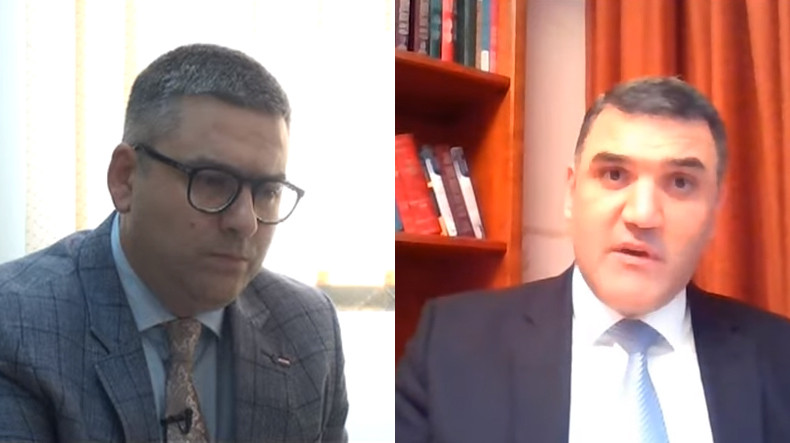
ECHR advisory opinion on Kocharyan case not subject to interpretation but translation - Gevorg Kostanyan
Armenia’s former Prosecutor General, Doctor of Law Gevorg Kostanyan is concerned with the fact that acting Prosecutor General has commented on the ECHR advisory opinion concerning charges brought against former President Robert Kocharyan. “The Constitutional Court of Armenia is the only and unique addressee of the ECRH advisory opinion and only the Constitutional Court may assess the decision of the European Court,” Kostanyan told an online interview on the 2nd TV Channel on Monday.
In Kostanyan’s words, the Prosecutor General’s Office and the Prosecutor General himself have no capacity to elaborate on the decision of the European court. He then suggested that the ECHR advisory opinion is not subject to interpretations but to translation only.
“There is no need to interpret the advisory opinion as the document clearly sets all the principles, resolutions and approaches the Constitutional Court should consider to apply. Any interpretation - be it from attorneys, state bodies or any other figure - has no relevance,” stressed Kostanyan, who served as Representative of the Republic of Armenia before the Court from 2004 to 2017.
He next noted that the advisory opinion contains references to precedents and previous judgements thus providing the scope for the Constitutional Court in analyzing the case. In his words, the Constitutional Court may not go beyond the scope of those precedents which have been developed over the past 50 years and outline the main approaches.
To note, Robert Kocharyan has been charged under Article 300.1 of the 2009 Criminal Code ( “Overthrow of the Constitutional order”) with offences which were alleged to have been committed in relation to events which took place in February and March 2008, when protests broke out over a disputed presidential election. At that time, a different provision of the former Criminal Code, Article 300 (“usurpation of power”), was in force.
Speaking of the provisions set out in the advisory opinion, Kostanyan recalled the ECHR reference to the Criminal Code article that cites another legal act, the Constitution which means that the requirements of clarity and foreseeability should be applicable to respective norms of the Constitution.
“It is explicit that the Article 300.1 contained a reference to Articles 1 to 5 and 6 § 1 of the Armenian Constitution of 2015. In the version of 2008 Constitutions, those articles didn’t exist in their current sequence and content. Thus it is unacceptable to speak of the clarity and foreseeability of the mentioned Article,” said Kostanyan.
Another restriction set by the ECHR for interpretation refers to the practical implementation of the legal norm.
“That is to say no derivation should for the application of Article 300.1 on the basis of formed practice in the country. In Armenia, we had the application of Article 301.1 when in 2009 or 2010 the Prosecutor General’s Office quitted the criminal prosecution and the Court acquitted the defendants. We have the practice, and the ECHR set the rule for the Constitutional Court to not leave that practice,” said Kostanyan.
To remind, the European Court of Human Rights (ECHR) delivered an advisory opinion on former Armenian President Robert Kocharyan’s case sought by the Constitutional Court of Armenia on May 29.
Newsfeed
Videos






























